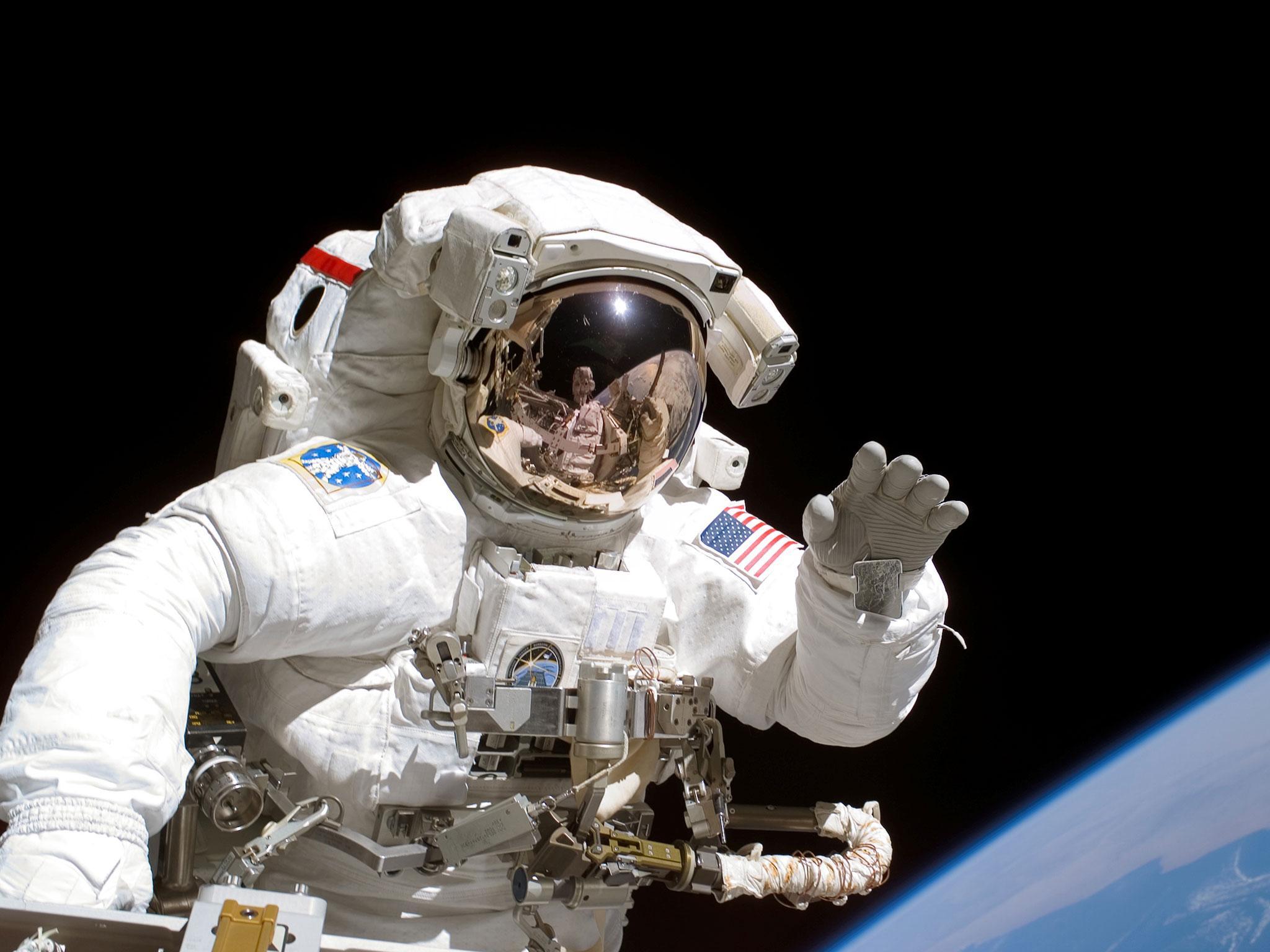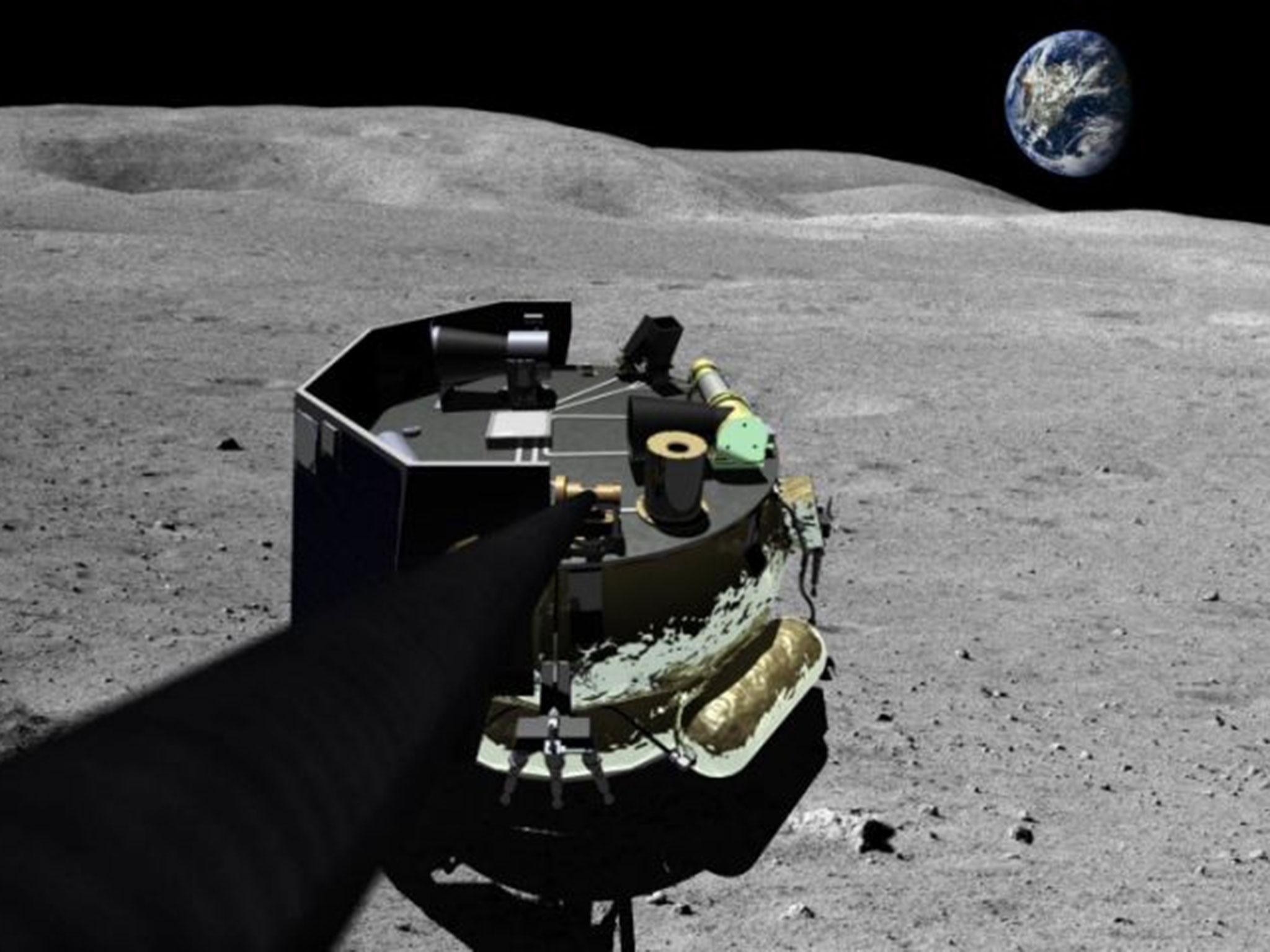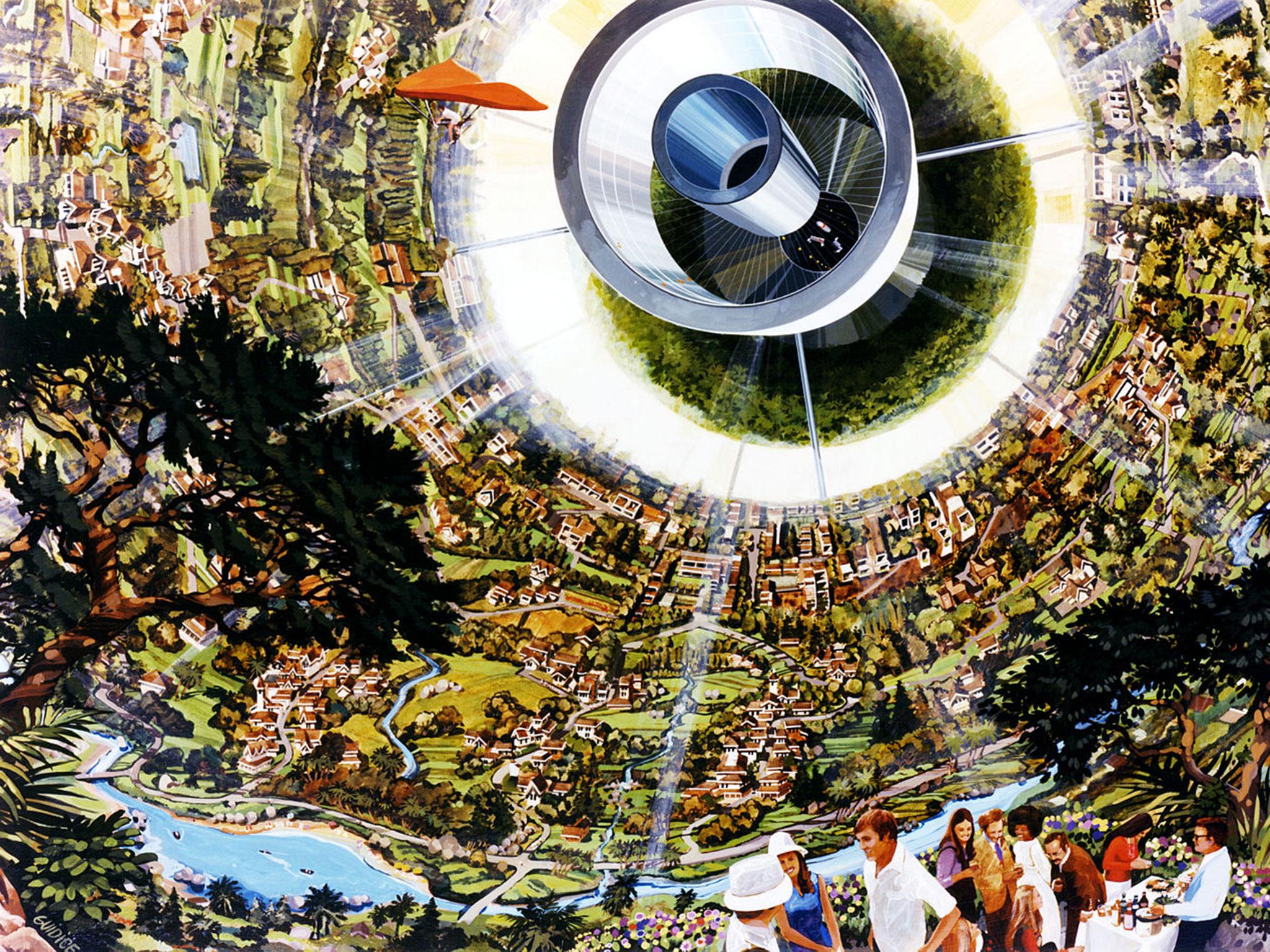Moon Express: How close are humans to living in space?
A US company has gained permission to carry out the first private mission to the moon, so are we nearer to settling on our celestial neighbour?

Your support helps us to tell the story
From reproductive rights to climate change to Big Tech, The Independent is on the ground when the story is developing. Whether it's investigating the financials of Elon Musk's pro-Trump PAC or producing our latest documentary, 'The A Word', which shines a light on the American women fighting for reproductive rights, we know how important it is to parse out the facts from the messaging.
At such a critical moment in US history, we need reporters on the ground. Your donation allows us to keep sending journalists to speak to both sides of the story.
The Independent is trusted by Americans across the entire political spectrum. And unlike many other quality news outlets, we choose not to lock Americans out of our reporting and analysis with paywalls. We believe quality journalism should be available to everyone, paid for by those who can afford it.
Your support makes all the difference.After the arguably mixed success that we humans have had with running our home planet (top marks for inventiveness but less success with not killing each other), we have taken an important step towards colonising space, as the US government has given a Florida-based company permission to conduct the first ever private mission to the moon.
The space entrepreneurs of Moon Express aim to send the MX-1 – a craft the size of a washing machine dubbed a “hot rod of space” – to the natural satellite by late 2017. Moon Express is set to unveil the rover in September. In a mission statement that emphasises the moon’s unclear, and potentially corporate, future, Moon Express said their plans for the near future involve mining resources to send back to Earth and burying people’s ashes – including those of co-founder Dr Bob Richards’s father – on its surface.
“We are now free to set sail as explorers to Earth’s eighth continent, the Moon, seeking new knowledge and resources to expand Earth’s economic sphere for the benefit of all humanity,” Dr Richards announced in an appropriately lofty statement in response to the US government’s verdict.
The glowing orb is a universal source of wonder and inspiration, and so the private sector’s first contact with the moon will likely be met with apprehension. Is humankind wise enough to treat the moon with care, or will we be blindsided by arrogance? Judging by the damage we have done to the Earth, perhaps we should forget about settling in space.
Unfortunately, humanity needs a Plan B. In the long term, we have little choice but to leave our home planet, according to space experts and the Moon Express team.
“We just need one natural disaster to bring the house of cards down,” warns David Rothery, professor of planetary geosciences at the Open University. A major natural disaster – be it a volcanic eruption or a large meteorite hitting Earth – will make existence on the planet almost impossible.
Before that, the Earth’s resources might deplete, and we may need to consider extracting materials from the moon to manufacture goods in the Earth’s orbit, suggests Dr Malcolm Macdonald, director of the Scottish Centre of Excellence in Satellite Applications at the University of Strathclyde.
“If you want to survive long-term as a civilisation, you need more than one basket to put your eggs in. We will want self-sustaining bases in space or on other worlds. The alternative is to just quietly all lie down and die. Do we want humans to exist or not?” asks Professor Rothery.
For all our sins, most of us would answer “yes”. Since the 1960s, the moon has been seriously considered as an alternative home for humans, explains Dr Aleks Scholz, the observatory director at the University of St Andrews.
But creating an escape route is far from easy. First, robots will likely conduct scientific experiments on the moon, and take advantage of the fact that is lack an atmosphere to study other celestial objects. China, for instance, has had a telescope on the moon since 2013 as part of its unmanned Chang’e 3 mission.
Its atmosphere-less state, however, is one of many reasons why the moon is largely inhospitable to us puny humans.

“Challenges for humans living on the moon include the very long lunar night, the lack of important chemical elements, such as hydrogen, nitrogen, oxygen, the risk of meteor hits and the weak magnetic field. The absence of an atmosphere causes temperature changes and radiation exposure, which makes the surface inhospitable,” says Dr Scholz. The moon also has a sixth of the Earth’s gravity – meaning our muscles and bones would waste away. Astronaut Tim Peake, who experienced zero gravity for six months, described the feeling of returning to earth as “the world’s worst hangover”.
Inhabiting the moon for any prolonged period would therefore be extremely expensive, says Professor Rothery. We would (hopefully) experiment with small colonies on the moon before being forced to flee Earth, but transporting goods 384,400km is pricey, and talk that trillions of dollars of valuable metals and other resources hiding inside the moon is yet unproven, he adds. Helium 3, which could be used for fuel, is currently the only attraction.
Instead of dreaming of joining the man on the moon, we should use the natural satellite to understand how humans cope in space, says Professor Rothery, in preparation for venturing out to Mars. The red planet boasts some atmosphere, evidence of liquid water – as Nasa discovered last year – and has twice as much gravity as the moon.
If we can do it for the International Space Station, why not large space missions like to the Moon and Mars? However, it will require a high degree of cooperation. Perhaps it will act to help unite the aims of countries
“It's perfectly feasible we will have sent humans to Mars in 10 years on a scientific expedition,” says Professor Rothery. Business magnate Elon Musks hopes so too. He belives his SpaceX project will see humans make their first steps on Mars by 2026.
Still, the issue of funding remains, and governments are unlikely to foot the entire bill. A mixed economy of space tourism, mining, and scientific research – whether private or public-funded – is the most likely financial model. This could even involve a reality TV show, suggests Professor Rothery.
“Give it 100 years and we could a viable community of humans on Mars,” he adds. At first, communities will be small and dependent on the Earth to a certain extent, but eventually, he predicts, the colonies will become autonomous and self-sustaining.
In the very distant future, when the issues that travelling vast distances between solar systems to other habitable planets in our galaxy are dealt with, experts believe we could do away with planets altogether. In a Star Trek-like model, we could inhabit the spacecrafts built sustain to life for quests that could take thousands of years. Nasa have already asked researchers to imagine habitats that orbit the earth, where tens of thousands of space travellers could be self-sufficient.

But let's not get ahead of ourselves. A huge amount of international cooperation is required for humanity to take any of these brave steps. John Bridges, professor of planetary science at Leicester University’s Space Research Centre, believes that such missions have the potential to unite world powers.
“If we can do it for the International Space Station, why not large space missions like to the Moon and Mars? However, it will require a high degree of co-operation. Perhaps it will act to help unite the aims of countries,” he says.
Dr Macdonald cautions that we should learn from our behaviour on Earth as we look to explore the universe. We don’t have another choice.
“Humans have a habit of being rather quarrelsome with each other. We have a habit of overusing resources. It would be good to work with the environment rather than work against it. If we were leaving Earth we’d be faced with very hostile environments.”
We have no choice but to venture into space – but we should proceed with uncharacteristic caution.
Join our commenting forum
Join thought-provoking conversations, follow other Independent readers and see their replies
Comments